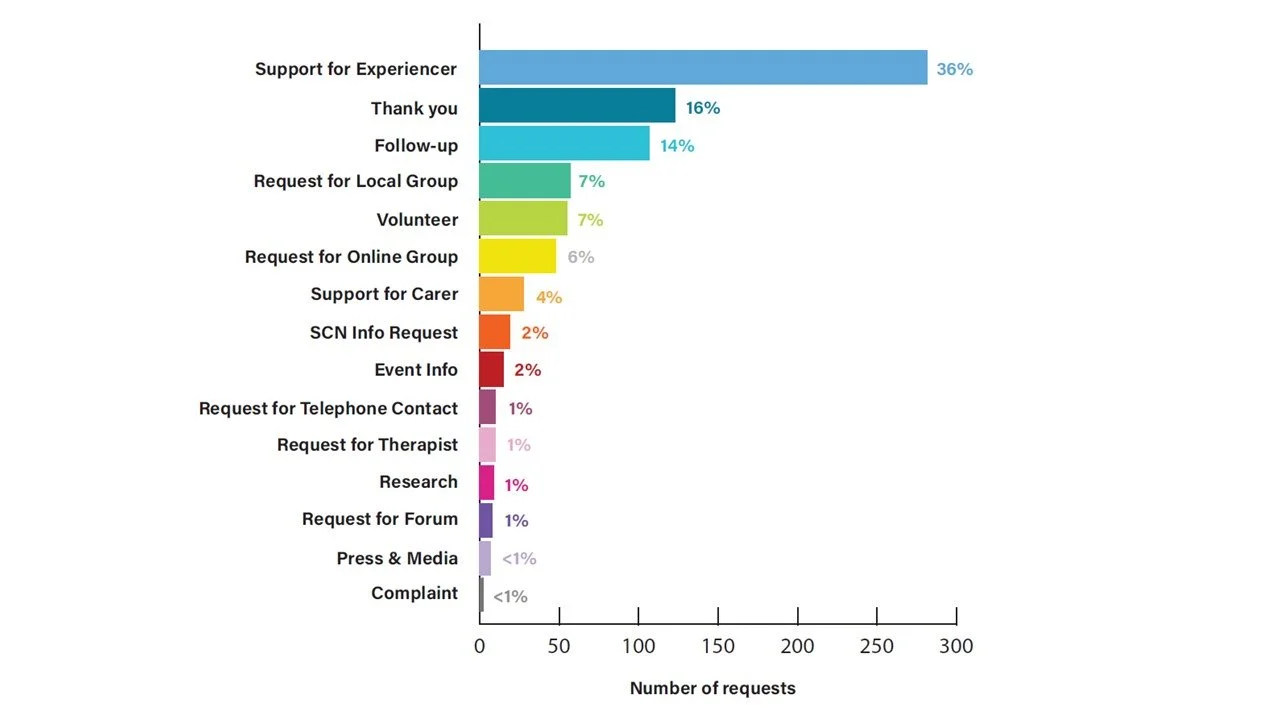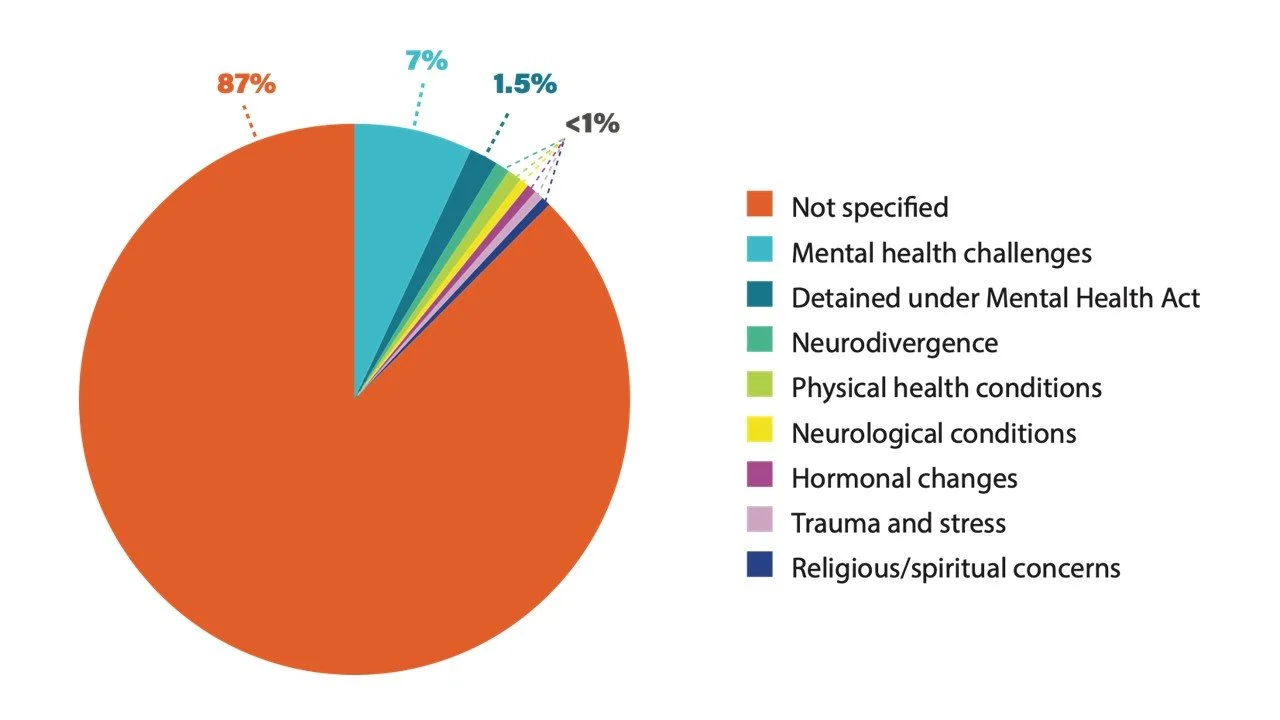Research
We are interested in studying human experiences that are outside our usual day-to-day experiencing of the world. The term most commonly used in the psychological research for this realm of experience is 'Anomalous Experiences', but many different terms have also been used, such as 'Exceptional Experiences' - 'Extreme Experiences' - 'Unusual Experiences' - 'Transformational Experiences' - 'Spiritual Experiences' - 'Out of the Ordinary Experiences' (OOEs) - 'Religious Experiences' etc.
SCN Conference 2 April 2022 - Spiritual Crises: Supporting Positive Transformations
The full conference programme, abstracts, and speaker biographies can be downloaded here: Speakers & Abstracts
Video recordings of Steve Taylor’s talk and the panel discussion on spiritually transformative experiences facilitated by Isabel Clarke can be found on the SCN YouTube channel here.
The following speakers have also made their PowerPoint slides available below:
Transformation and Turmoil: When Spiritual Awakening is Sudden and Dramatic - Dr Steve Taylor
An Evaluation of the UK Spiritual Crisis Network - Mike Rush
Evidence-based Practices for Integrating Spiritual Emergencies - Dr Marie Grace Brook
Other Research
There are relatively few empirical studies on spiritual crisis (aka spiritual emergency). However, despite the dearth of academic studies in this area, there are four main themes emerging in research that support the approach taken by the SCN. These are summarised below with link to some of the key articles.
The first theme is comprised of the evaluation studies done on alternative approaches to psychosis and schizophrenia in the 1970s and 1980s. These take a psycho-social approach that minimises the use of medication and encourages the working through of the experience as a problem-solving process in a safe communal space (Mosher & Bola, 2004).
The second theme consists of more recent studies that assess the effects of the appraisal of an experience, by self or others, on its outcome. Positive appraisals tend to result in less distress and reduce the need for clinical intervention (Brett et al, 2014).
The third theme evidences the importance of a narrative, story, or framework of understanding for the process. These frameworks can be based upon various different spiritual systems or religious traditions and provide a context within which to make sense of the experience. Different cultural perspectives are important to consider too (Remy-Fischler, 2021).
The fourth theme, which is currently the least researched, investigates the effectiveness of particular self-help attitudes, behaviours, and practices. There have been no studies that assess the effectiveness of any specific psychotherapeutic interventions for spiritual crisis. However, Brook’s (2021) study did examine the effectiveness of 84 behaviours and practices. Those rated most helpful were practising compassion, finding calmer environments, expression of the experience through creativity, and allowing psycho-spiritual issues to surface rather than resisting them.
The SCN has begun to post these evidence-based grounding tips on its Facebook page and Instagram.
Selected References
Brett, C., Heriot-Maitland, C., McGuire, P., & Peters, E. (2014). Predictors of Distress Associated with Psychotic-like Anomalous Experiences in Clinical and Non-clinical Populations. British Journal of Clinical Psychology, 53, 213–227.
Brook, M. G. (2021). Struggles reported integrating intense spiritual experiences: Results from a survey using the Integration of Spiritually Transformative Experiences Inventory. Psychology of Religion and Spirituality, 13(4), 464-481.
Mosher, L., & Bola, J. (2004). Soteria-California and its American Successors. Ethical Human Psychology & Psychiatry, 6(1), 7–23.
Remy-Fischler, R. (2021). Psychosis, spiritual crisis, and narrative transformation: An ethnography of spiritual peer-support networks in the United Kingdom. In A.R. Hatala & K. Roger (Eds.), Spiritual, Religious, and Faith-Based Practices in Chronicity. Routledge.
The SCN Research Group
This is a small group of researchers and others interested in research into spiritual crisis, spiritual emergency, or spiritually Transformative Experiences (STEs). Researchers from different universities, pursing various post-graduate programmes of study, meet each month online to report on and share their work.
If you are interested in joining the SCN Research Group please contact Mike Rush via the Contact Us page.
SCN Statistics
The SCN monitors some basic statistics in order to evaluate the services it provides. The figures below are from 2022.
Types of Request Made to the SCN in 2022
The SCN provides support, information, and signposting via email, runs several online and face-to-face peer-support groups, and delivers online events in the form of training and awareness sessions. The SCN does not currently provide telephone support, referals to individual therapists, or retreat venues.
Carers can be anyone supporting someone who is experiencing spiritual crisis, including friends, family, or health care professionals.
Types of Spiritual Crisis Reported to the SCN in 2022
Specific types of spiritual emergency, as defined by Stanislav and Christina Grof and others, were self-reported by people contacting the SCN in 2022. Not all of the people contacting the SCN categorised their experience and some people reported more than one category of experience.
The SCN itself does not label or impose categories on people's experiences.
Types of Diagnosis Reported to the SCN in 2022
In 2022, individuals contacting the Spiritual Crisis Network (SCN) self-reported various medical or psychiatric diagnoses. However, 87% of the individuals did not specify any particular diagnosis. It's important to note that some individuals reported more than one diagnosis, which could be either those given by healthcare professionals or self-diagnosed.
Please note: the SCN does not provide diagnoses for people's experiences. Instead, the reported diagnoses have been categorised here to offer insights into the broader themes detected.
For Further Information…
For further information about research into spiritual crisis in general, or about the SCN evaluation study in particular, please contact Mike Rush





